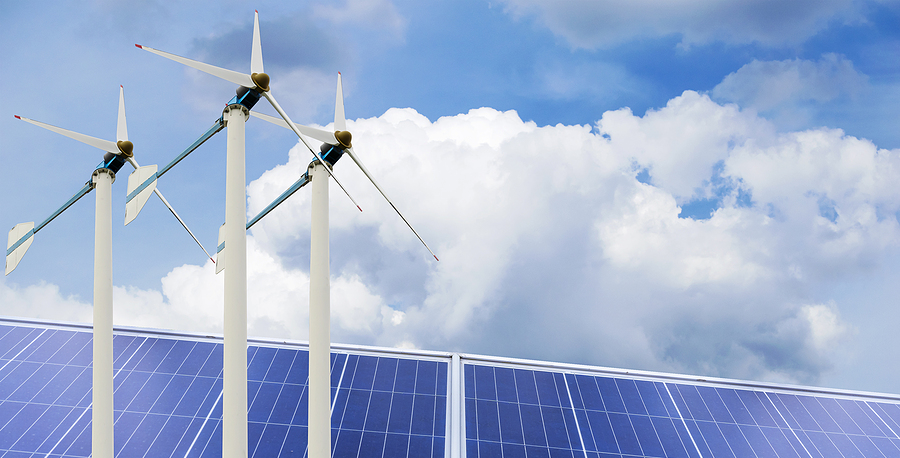Proximo Weekly: Masdar and ACWA’s Stans stampede
The Stans are beginning to look like a renewables double-act for Masdar and ACWA Power, with a host of utility-scale project agreements signed across the region over the past few months.

On 2 March ACWA Power signed a head of terms agreement with the Kazakh Ministry of Energy and sovereign wealth fund Samruk-Kazyna to lead and develop a 1GW wind energy and battery storage project. The $1.5 billion scheme is ACWA’s first project in Kazakhstan and is expected to be completed by 2027.
Masdar also debuted in the Kazakh renewables market in January with a similar agreement with the Kazakh Ministry of Energy and Kazakhstan Investment Development Fund (KIDF) to jointly develop up to 1GW of wind, with the first phase focused on deploying 500MW with the possible inclusion of battery storage.
More Kazakh deals from both sponsors will very likely follow. At the end of 2021 wind accounted for just 4% of Kazakhstan’s installed capacity. Contrast that with the Kazakhstan 2050 Strategy, which includes the country meeting 50% of its energy requirements via alternative and green energy technologies by 2050, and moves by Kazakhstan to fast-track development, and ‘likely’ very quickly becomes ‘certainly’.
Uzbekistan also booming
The same competitive double-act is also having significant tender success over the border in the more rapidly developing market in Uzbekistan. So rapid has Uzbekistan renewables development become that ACWA recently signed an agreement with the Uzbekistan government and state-owned Uzkimyosanaot for the country’s first green hydrogen project – a green hydrogen project in Uzbekistan would have generated laughter as a market prediction just six months ago.
ACWA has an accelerated development timeline for the project and is targeting commissioning for December 2024, which might prove challenging if the developer is planning on tapping DFI or ECA support for the scheme. That said, ACWA’s Uzbek investment portfolio is now only second in size to its domestic Saudi portfolio, so the developer has the experience and financing relationships to get the deal done as quickly as possible.
In late December 2022 ACWA also signed power purchase agreements (PPAs) and investment agreements with the Uzbek government to develop the $2.4 billion 1.5GW Kungrad wind farm in Karakalpakstan (formerly referred to as the Karakalpakstan Wind IPP). The project will comprise three 500MW plants, with each incorporating a 100MW capacity battery energy storage system. When complete, the scheme will be the largest single-site wind farm in Central Asia.
In the same month ACWA also raised two syndicated loans totalling $520 million to part finance construction of its 500MW Bash and 500MW Dzhankeldy wind projects in the Bukhara region.
The deal has heavy EBRD backing. The Bash project debt comprises a $277 million facility split between a $150 million EBRD A loan and a $127 million B loan syndicated to commercial lenders. The Dzhankeldy financing totals $243 million split between a $150 million A loan and a $93 million B tranche. The two projects will be co-financed by DEG, Proparco, Standard Chartered and other commercial lenders.
Masdar looking for financing
Masdar has also been adding to its Uzbekistan deal pipeline, most recently winning a tender for a 250MW solar project in the Bukhara region. Voltalia and Powerchina were also successful in the same tender, winning 100MW and 150MW schemes respectively.
Masdar’s biggest Uzbekistan deal to date has been the Zarafshan wind project financing in 2022 which closed despite an increase in base rates between PPA signing and financial close. The deal arguably set the template for wind IPP financing in the country and included some novel financial engineering specifically designed for the Uzbek market: notably, provision by the EBRD of a revolver to cover construction period VAT payments – the first time a DFI had offered such an instrument in the country.
This year Masdar is looking to reach financial on three solar plants that were tendered in the first half of 2021 – the 220MW $202 million Samarkand solar IPP, the $207 million 220MW Jizzakh solar IPP, and the $431 million 457MW Sherabad solar project. The EBRD is considering providing debt for all three schemes, and other DFI lenders that participated alongside EBRD in Masdar’s Zarafshan deal – ADB, IFC and JICA – are also likely looking at the financings.
And lest we forget, in 2021 Masdar signed an implementation agreement with the government to expand the capacity of Zarafshan from 500MW to 1.5GW. That expansion, even if phased and funded with a considerable equity portion (Zarafshan was financed on a 52/48 debt to equity ratio), will still require significant amounts of debt.
The Proximo perspective
The snowballing debt requirement for these projects will almost certainly mean tapping development finance institutions, which have already bankrolled the rapid developments to date in Uzbekistan.
Although Kazakhstan has an investment grade credit rating, the pathfinder status of both ACWA and Masdar’s wind deals means they will likely require some DFI support.
Similarly, although Uzbekistan has made great strides with energy liberalisation, the introduction of a specific renewable energy law and a PPP law (both in 2019) – and most commercial lenders would concede the bankability of Uzbekistan renewables projects is relatively strong because of government backing of offtake obligations, long-term PPAs and tariffs in US dollars – the country’s sovereign rating is still three notches below investment grade, despite having been recently upped by Moody’s to Ba3 from B1. In short, a pure commercial bank deal is still a long way off.
The current level of DFI support for Stans renewables shows no signs of diminishing in the immediate future, particularly as Uzbek renewables projects transition from medium- to utility-scale. For example, Masdar’s Nur Navoi Solar PV scheme – Uzbekistan’s first solar IPP, financed in 2020 by IFC, ADB, World Bank and EBRD – was just 100MW in scale. Two years later and Masdar was back with a project financing for its $580 million 500MW Zarafshan wind scheme – the first wind IPP to reach financial close in Uzbekistan.
The increasing scale of projects reflects the upping by the Uzbekistan government of its initial renewables ambitions. The government’s Energy Supply Security Concept 2020-2030, issued in April 2020, targeted 8GW of renewables – 3GW of wind and 5GW of solar – to come on stream by 2030. In 2022 the targets were upped to 8GW to be in place by 2026, and a further 4GW by 2030 – 12GW in total, of which 5GW will be wind and 7GW solar.
Given the burgeoning developer appetite for Stans renewables – for example, an Uzbek RfP launched in December for a 300MW solar project near Kashkadarya went out to eight prequalified bidders – the long term capacity targets of both the Uzbek and Kazakh governments, while ambitious, may yet be met. But the growing debt requirement could prove problematic for DFIs unless the pace of transition from pure DFI to blended finance, and finally to pure commercial bankability, picks up in tandem.
Selected news articles from Proximo last week
Tellurian faces new setback as LNG project financing looms
Tellurian is facing a new setback in a long-running effort to advance a $12.5 billion US liquefied natural gas export project.
BNetzA launches 1800MW offshore wind tender
Germany’s Bundesnetzagentur (BNetzA) has launched its third tender for pre-examined offshore wind areas.
Landmark 600MW Laos wind project secures $692m package
ADB and Monsoon Wind Power Company have signed a $692.55 million nonrecourse project financing package to build a 600MW wind power plant in Sekong and Attapeu provinces in the southern region of Laos to export and sell power to neighbouring Vietnam.
Red Rocket reaches financial close on three wind projects
Red Rocket has closed on the financing of three wind farms in South Africa.
SOUTH AMERICA
Telefonica looking to replicate IpT in Colombia
Telefonica is planning to reproduce its Internet para Todos (IpT) collaborative mobile internet coverage model for a project in Colombia.
The Proximo Intelligence subscription
Join our community of project finance professionals to get unrivalled access to unique analysis, market data and a global portfolio of expert industry events in the energy and infrastructure space. Click here to find out more





